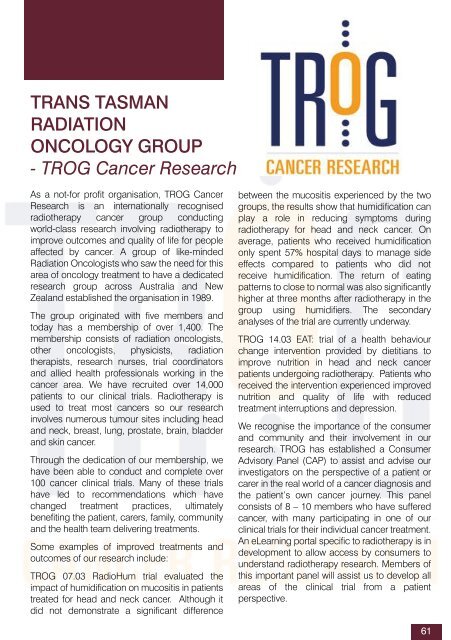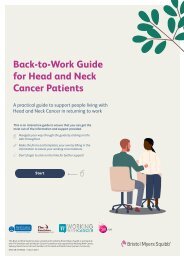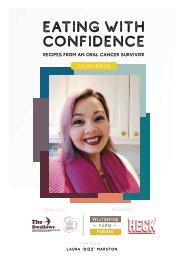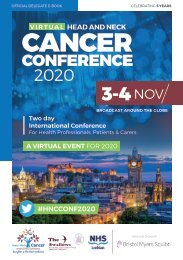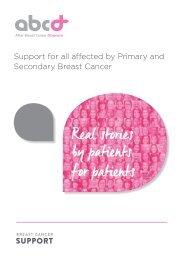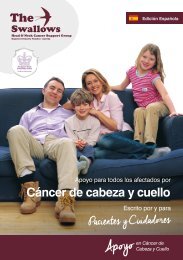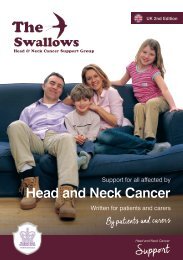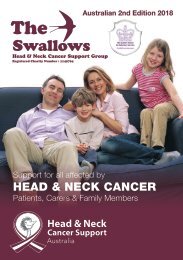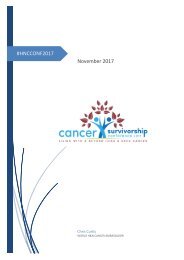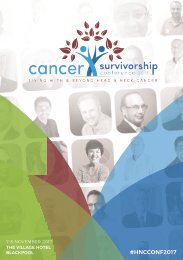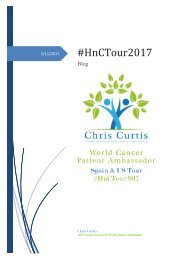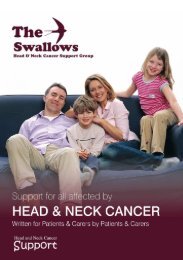The Swallows Australian Edition Magazine
You also want an ePaper? Increase the reach of your titles
YUMPU automatically turns print PDFs into web optimized ePapers that Google loves.
TRANS TASMAN<br />
RADIATION<br />
ONCOLOGY GROUP<br />
- TROG Cancer Research<br />
As a not-for profit organisation, TROG Cancer<br />
Research is an internationally recognised<br />
radiotherapy cancer group conducting<br />
world-class research involving radiotherapy to<br />
improve outcomes and quality of life for people<br />
affected by cancer. A group of like-minded<br />
Radiation Oncologists who saw the need for this<br />
area of oncology treatment to have a dedicated<br />
research group across Australia and New<br />
Zealand established the organisation in 1989.<br />
<strong>The</strong> group originated with five members and<br />
today has a membership of over 1,400. <strong>The</strong><br />
membership consists of radiation oncologists,<br />
other oncologists, physicists, radiation<br />
therapists, research nurses, trial coordinators<br />
and allied health professionals working in the<br />
cancer area. We have recruited over 14,000<br />
patients to our clinical trials. Radiotherapy is<br />
used to treat most cancers so our research<br />
involves numerous tumour sites including head<br />
and neck, breast, lung, prostate, brain, bladder<br />
and skin cancer.<br />
Through the dedication of our membership, we<br />
have been able to conduct and complete over<br />
100 cancer clinical trials. Many of these trials<br />
have led to recommendations which have<br />
changed treatment practices, ultimately<br />
benefiting the patient, carers, family, community<br />
and the health team delivering treatments.<br />
Some examples of improved treatments and<br />
outcomes of our research include:<br />
TROG 07.03 RadioHum trial evaluated the<br />
impact of humidification on mucositis in patients<br />
treated for head and neck cancer. Although it<br />
did not demonstrate a significant difference<br />
between the mucositis experienced by the two<br />
groups, the results show that humidification can<br />
play a role in reducing symptoms during<br />
radiotherapy for head and neck cancer. On<br />
average, patients who received humidification<br />
only spent 57% hospital days to manage side<br />
effects compared to patients who did not<br />
receive humidification. <strong>The</strong> return of eating<br />
patterns to close to normal was also significantly<br />
higher at three months after radiotherapy in the<br />
group using humidifiers. <strong>The</strong> secondary<br />
analyses of the trial are currently underway.<br />
TROG 14.03 EAT: trial of a health behaviour<br />
change intervention provided by dietitians to<br />
improve nutrition in head and neck cancer<br />
patients undergoing radiotherapy. Patients who<br />
received the intervention experienced improved<br />
nutrition and quality of life with reduced<br />
treatment interruptions and depression.<br />
We recognise the importance of the consumer<br />
and community and their involvement in our<br />
research. TROG has established a Consumer<br />
Advisory Panel (CAP) to assist and advise our<br />
investigators on the perspective of a patient or<br />
carer in the real world of a cancer diagnosis and<br />
the patient’s own cancer journey. This panel<br />
consists of 8 – 10 members who have suffered<br />
cancer, with many participating in one of our<br />
clinical trials for their individual cancer treatment.<br />
An eLearning portal specific to radiotherapy is in<br />
development to allow access by consumers to<br />
understand radiotherapy research. Members of<br />
this important panel will assist us to develop all<br />
areas of the clinical trial from a patient<br />
perspective.<br />
61


